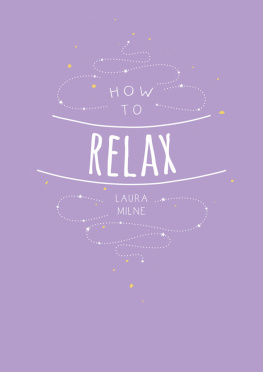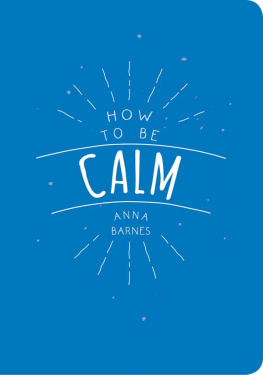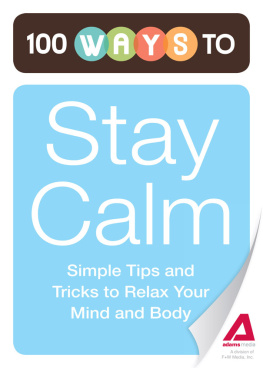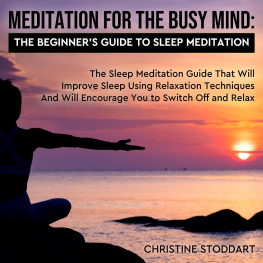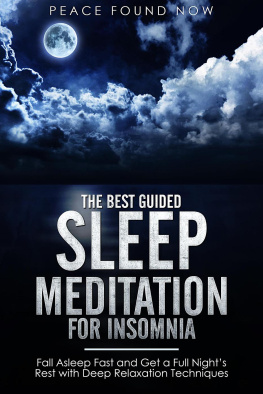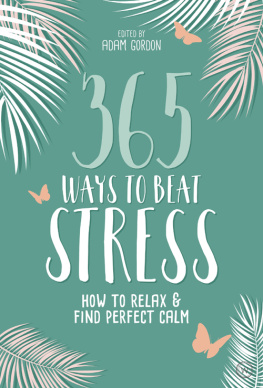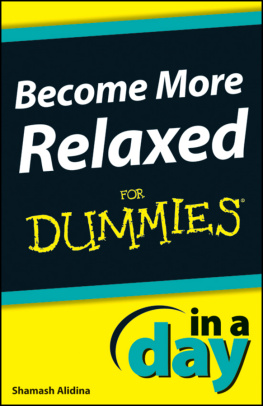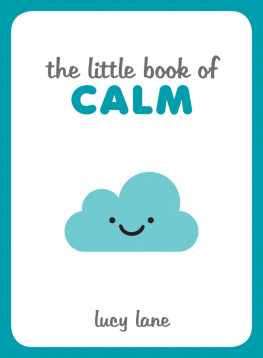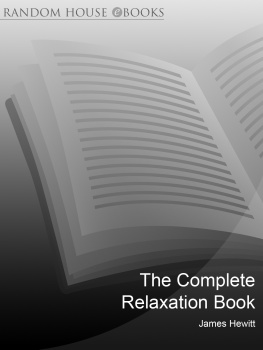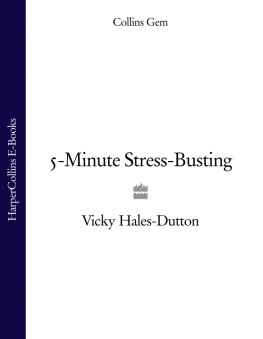HOW TO RELAX
Copyright Summersdale Publishers Ltd, 2018
Design by Luci Ward
Illustrations Shutterstock.com
All rights reserved.
No part of this book may be reproduced by any means, nor transmitted, nor translated into a machine language, without the written permission of the publishers.
Laura Milne has asserted her moral right to be identified as the author of this work in accordance with sections 77 and 78 of the Copyright, Designs and Patents Act 1988.
Condition of Sale
This book is sold subject to the condition that it shall not, by way of trade or otherwise, be lent, resold, hired out or otherwise circulated in any form of binding or cover other than that in which it is published and without a similar condition including this condition being imposed on the subsequent purchaser.
An Hachette UK Company
www.hachette.co.uk
Vie Books, an imprint of Summersdale Publishers Ltd
Part of Octopus Publishing Group Limited
Carmelite House
50 Victoria Embankment
LONDON
EC4Y 0DZ
UK
www.summersdale.com
eISBN: 978-1-78685-885-6
Substantial discounts on bulk quantities of Summersdale books are available to corporations, professional associations and other organisations. For details contact general enquiries: telephone: +44 (0) 1243 771107 or email: .
INTRODUCTION: WHY WE NEED TO RELAX
Whether were racing to meet deadlines at work, managing a health issue or handling a difficult personal situation, stress is an inevitable part of life. And a certain amount of stress in our lives is necessary. It helps our minds and bodies to prepare for difficult challenges and to react appropriately in a crisis.
When were under pressure, our bodies go into fight or flight mode, our muscles become tense, our heart rate increases and our breathing quickens. Too much continued stress can seriously affect both our physical and mental well-being. Left unchecked, it can lead to feeling burned out or becoming clinically depressed or anxious.
The good news is that there is something you can do about it learn to relax. Fully relaxing both the mind and body slows the heart and respiration rate and reduces blood pressure, muscle tension and even oxygen consumption. In the coming pages we will look at different techniques that will enable you to let go of the stresses and strains in your life and reach a state of complete calm where clarity of thought and peace of mind can be achieved.
RELAXATION FOR EVERY DAY

A RELAXING ROUTINE
Relaxation exercises can be a powerful weapon against stress. If you learn to relax your breathing and muscles, then its likely that your mind will follow. In a similar way, easing stressful thoughts and worries in turn helps the body to fully relax.
There are lots of different techniques you can try in the following pages of this book. Whichever you choose, try to practise it at least a couple of times a week so that it will be effective when you need it most. This takes patience and determination, but persevere its worth it. Tell yourself that relaxation works like a muscle the more you exercise it, the stronger it gets.
BALANCE YOUR BREATH
When youre feeling stressed, your breathing rate becomes faster, shallower and higher up in your chest. Deep breathing allows you to take fuller, slower breaths. Try this kundalini breathing exercise:
- Sit up straight and pucker your lips as if holding a coin between them.
- Breathe in for a count of four, hold the breath for a count of four and then exhale fully through your nose.
- Do this for a few minutes and notice how you feel afterwards.
Sometimes the most important thing in a whole day is he rest we take be ween two deep breaths.
Etty Hillesum

TAKE CHARGE
Being disorganised or leaving things until the last minute leads to frustrating or crisis situations, which are likely to make you feel stressed. If you establish your priorities by making a daily or weekly to-do list to help you plan your time effectively, then you are more likely to feel relaxed and be able to cope especially when unexpected obstacles crop up.

Good order is the foundation of all good things.
Edmund Burke

HAVE SOME ME TIME
Taking time to relax is just as important as working or ticking jobs off on your never-ending to-do list. As a minimum, take short relaxation breaks during your busy day. If you can, schedule time in your day just for yourself so that you can recharge your batteries for all the other things you need to do. Learn what your red flags for stress are and have some me time up your sleeve to counteract these when they appear.

TALK IT OUT
Whether its a trusted friend, a family member or a professional counsellor, finding someone to talk to about your feelings and worries when you are feeling stressed and stuck in a negative spiral can really help you get things off your chest, which, in turn, will help you relax. The simple act of vocalising your thoughts can help you understand them better and think problems through logically, and may even make your worries seem smaller. Talk to people who can help you put things into perspective and work out practical solutions.

STRESS IS A CHOICE:
so is peace of mind
HAVE A CUPPA
Theres nothing more comforting than a nice cup of tea. However, too much caffeine can have an impact on sleep quality research suggests consuming caffeine after midday can negatively affect your sleep, so save your caffeinated teas and coffees for a morning treat and consider switching to a more calming brew after lunch. The menthol contained in peppermint tea is a natural muscle relaxant, making it a great option to have before bedtime. Camomile and valerian contain flavonoids, which also have a calming effect on the brain.

Relax.

Everything is running right on schedule
LEARN TO SAY NO
Its human nature to want to be seen as obliging, but dont feel that you must take on every request or opportunity that comes your way. Saying no doesnt mean you are self-centred or uncaring; it protects you from over-stretching yourself and can be very empowering.


